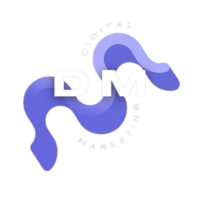Social Media Marketing
Social media has become an integral part of our daily lives, and it has also revolutionized the way businesses market their products and services. With the rise of social media platforms, a new marketing technique has emerged, known as social media marketing. This article will explore what social media marketing is, its purpose, key components, fundamentals of digital marketing in social media marketing, examples of effective campaigns, and common mistakes to avoid.
What is Social Media Marketing?
Social media marketing is the process of promoting a business, product, or service through social media platforms like Facebook, Instagram, Twitter, and LinkedIn. It involves creating and sharing content that engages and attracts the audience to drive website traffic, sales, and brand awareness. Social media marketing also includes social media advertising, which involves paying to display ads to social media users based on demographics, interests, behaviors, and other criteria.
The Purpose of Social Media Marketing
The purpose of social media marketing is to build a strong online presence, attract and retain customers, drive website traffic, increase sales, and improve brand awareness. Social media marketing also allows businesses to interact with their customers and respond to their queries and concerns. The ultimate goal of social media marketing is to create a loyal customer base that will act as brand ambassadors and refer the business to their network.

Key Components of Social Media Marketing
The key components of social media marketing include audience research, content creation, social media advertising, community management, and social media analytics. Audience research involves identifying the target audience’s demographics, interests, behaviors, and pain points. Content creation involves developing high-quality, engaging, and shareable content that aligns with the target audience’s interests and needs. Social media advertising involves creating and running ads on social media platforms to target specific demographics and interests. Community management involves monitoring and responding to comments, messages, and reviews on social media. Social media analytics involves tracking and measuring the performance of social media marketing efforts using metrics like engagement rate, reach, and conversion rate.
Fundamentals of Digital Marketing in Social Media Marketing
To maximize engagement on social media, it’s important to post at times when your target audience is most active. This will increase the chances of your content being seen and interacted with. You can use tools such as Hootsuite and Buffer to schedule your posts at optimal times and ensure consistent posting.
Examples of Effective Social Media Marketing Campaigns
Effective social media marketing campaigns include the ALS Association’s Ice Bucket Challenge, Coca-Cola’s #ShareACoke campaign, and Wendy’s Twitter roasts. These campaigns had a significant impact on social media and achieved their business objectives by increasing brand awareness, driving website traffic, and boosting sales.
Common Mistakes to Avoid in Social Media Marketing
Common mistakes to avoid in social media marketing include not having a clear strategy, ignoring the target audience’s needs and preferences, using irrelevant or low-quality content, ignoring social media analytics, and neglecting social media advertising. These mistakes can lead to a waste of resources, a decrease in engagement, and a negative impact on the brand’s reputation.
Positive and negative side of Social Media
Social media marketing, comprised in the fundamentals of Digital Marketing,(SMM) can bring numerous benefits to a business, especially when it comes to customized campaigns that can efficiently reach and engage with diverse target audiences. However, SMM also carries some inherent risks, as any social media content can potentially generate negative feedback, criticism, or even false allegations that can spread rapidly and harm a company’s reputation. In particular, a viral video that alleges a product causes harm, whether true or false, can trigger a crisis that requires prompt and effective management. If left unaddressed or mishandled, the impact of a false viral content can negatively affect a company’s sales and brand image for a long time. Therefore, while SMM can be a powerful marketing tool, companies need to be aware of its limitations and potential pitfalls to minimize the risks and maximize the benefits.

Follow me for more
Ask me any questions and I will get back to you in less than 24h.




